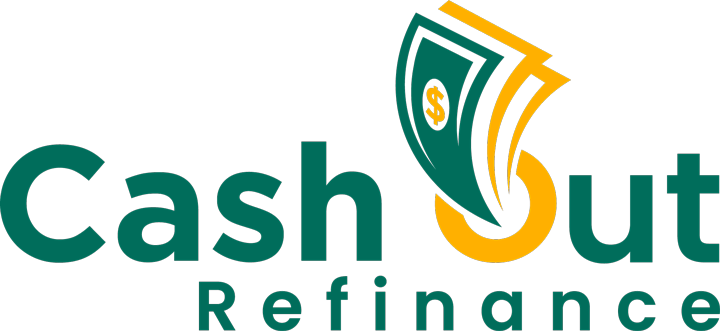Refinancing your mortgage can be a powerful financial tool, especially when you need access to cash for home improvements, debt consolidation, or major expenses. Among the different refinancing options available, two popular choices are the Conventional Cash-Out Refinance and the FHA Cash-Out Refinance. Both options allow homeowners to tap into their home equity, but the requirements, costs, and benefits differ significantly between them.
In this blog post, we will compare conventional vs FHA cash-out refinance options to help you determine which one best fits your financial situation. We’ll explore the key differences in eligibility requirements, costs, and the specific homeowners who benefit most from each option.

Understanding the Basics: What Are Cash-Out Refinances?
Before diving into the comparison, it’s important to understand the basic concept of a cash-out refinance. This type of loan allows you to replace your existing mortgage with a new one, borrowing more than what you currently owe and receiving the difference in cash. For example, if your home is valued at $300,000 and you owe $150,000 on your mortgage, you could refinance for $225,000, pay off the $150,000 loan, and pocket the remaining $75,000 (minus closing costs).
Homeowners typically opt for a cash-out refinance to:
- Fund home renovations.
- Consolidate high-interest debt (such as credit card balances).
- Cover large expenses like college tuition or medical bills.
- Invest in other financial opportunities.
Now that you have a clear idea of what a cash-out refinance entails, let’s dive into the key differences between conventional and FHA cash-out refinance options.
Conventional Cash-Out Refinance: What to Expect
A conventional cash-out refinance is offered by private lenders and is not insured by the government. This option is often chosen by homeowners with good credit scores and substantial equity in their homes.
Eligibility Requirements for a Conventional Cash-Out Refinance
- Credit Score: Most lenders require a credit score of at least 620 for a conventional cash-out refinance. However, higher credit scores (typically above 700) will give you access to more competitive interest rates.
- Loan-to-Value (LTV) Ratio: Lenders usually allow you to borrow up to 80% of your home’s appraised value. For example, if your home is valued at $400,000, you can borrow up to $320,000.
- Debt-to-Income (DTI) Ratio: Lenders will review your DTI ratio, which compares your monthly debt payments to your gross monthly income. A DTI ratio of 43% or lower is typically required for conventional loans.
- Equity: You need at least 20% equity in your home to qualify for a conventional cash-out refinance. This means you must have paid down enough of your mortgage to make the loan worthwhile.
Costs and Benefits of a Conventional Cash-Out Refinance
- Interest Rates: Conventional cash-out refinance loans typically have lower interest rates than FHA loans, especially for borrowers with excellent credit scores.
- Private Mortgage Insurance (PMI): If your loan-to-value ratio is 80% or lower, you won’t be required to pay PMI. However, if your LTV exceeds 80%, you’ll need to pay for PMI, which can add to your monthly payments.
- Closing Costs: Like any refinance, there are closing costs involved. These typically range from 2% to 5% of the loan amount and can be rolled into the loan.
Who Benefits Most from a Conventional Cash-Out Refinance?
- Homeowners with Good Credit: If you have a strong credit score, you can secure a lower interest rate with a conventional loan compared to an FHA loan.
- High Equity Homeowners: If you have significant equity in your home (at least 20%), a conventional cash-out refinance allows you to access that equity without paying for mortgage insurance.
- Borrowers Avoiding Mortgage Insurance: Since PMI is not required with 20% equity, this option is ideal for homeowners looking to avoid the extra cost of insurance.
FHA Cash-Out Refinance: What You Need to Know
An FHA cash-out refinance is insured by the Federal Housing Administration (FHA) and is designed to help homeowners who may not qualify for conventional loans due to lower credit scores or less equity.
Eligibility Requirements for an FHA Cash-Out Refinance
- Credit Score: FHA loans have more lenient credit score requirements. Borrowers with credit scores as low as 580 may qualify, although some lenders might have higher minimums (such as 600 or 620).
- Loan-to-Value (LTV) Ratio: FHA allows borrowers to refinance up to 80% of their home’s value, just like conventional loans. However, FHA loans are more accessible to those with less-than-perfect credit.
- Debt-to-Income (DTI) Ratio: The FHA is more flexible with DTI ratios, often allowing up to 50%, depending on your lender and financial situation.
- Equity: Similar to conventional loans, you need at least 20% equity in your home to qualify for an FHA cash-out refinance.
Costs and Benefits of an FHA Cash-Out Refinance
- Interest Rates: FHA loans generally come with slightly higher interest rates than conventional loans. However, the lower credit score requirement makes it accessible to a broader range of borrowers.
- Mortgage Insurance Premiums (MIP): One downside of FHA loans is the required upfront and annual mortgage insurance premiums (MIP). This insurance protects the lender in case of default and is required regardless of your loan-to-value ratio. The upfront MIP is typically 1.75% of the loan amount, and the annual MIP ranges from 0.45% to 1.05% of the loan amount, depending on your LTV and loan term.
- Closing Costs: FHA closing costs are similar to conventional loans, typically 2% to 5% of the loan amount.

Who Benefits Most from an FHA Cash-Out Refinance?
- Homeowners with Lower Credit Scores: If your credit score falls below the conventional loan threshold (620), an FHA cash-out refinance is a viable option. It offers more lenient credit requirements.
- Borrowers with Higher Debt-to-Income Ratios: If your DTI is slightly above 43%, you may still qualify for an FHA cash-out refinance. This flexibility makes it a better option for homeowners with higher debt.
- Homeowners Who Don’t Mind Mortgage Insurance: While FHA loans offer more accessibility, the required MIP adds to the overall cost. Homeowners comfortable with paying for insurance in exchange for accessing equity will benefit from this option.
Conventional Cash-Out Refinance vs FHA Cash-Out Refinance: Side-by-Side Comparison
| Feature | Conventional Cash-Out Refinance | FHA Cash-Out Refinance |
| Minimum Credit Score | 620 or higher | 580 or higher |
| Loan-to-Value (LTV) Ratio | Up to 80% | Up to 80% |
| Debt-to-Income (DTI) Ratio | 43% or lower | Up to 50% in some cases |
| Mortgage Insurance | PMI required if LTV > 80% | Upfront and annual MIP required |
| Interest Rates | Typically lower for borrowers with good credit | Slightly higher than conventional loans |
| Closing Costs | 2% – 5% of the loan amount | 2% – 5% of the loan amount |
| Best For | Homeowners with good credit and high equity | Homeowners with lower credit or higher DTI |
Key Factors to Consider When Choosing Between Conventional and FHA Cash-Out Refinance
When deciding between a conventional cash-out refinance and an FHA cash-out refinance, several factors should influence your decision:
- Your Credit Score: If your credit score is below 620, an FHA cash-out refinance will likely be your best option. However, if you have a higher score, a conventional loan could offer better interest rates and terms.
- Loan-to-Value Ratio: Both loan types allow you to borrow up to 80% of your home’s value. However, if you’re close to that limit, you’ll want to carefully consider the cost of mortgage insurance (PMI for conventional loans vs MIP for FHA loans).
- Debt-to-Income Ratio: If your DTI ratio is slightly higher than the conventional loan limit (43%), an FHA loan might offer the flexibility you need. FHA lenders are generally more forgiving when it comes to debt-to-income ratios.
- Mortgage Insurance: One of the key distinctions between the two loan types is mortgage insurance. FHA loans require both upfront and annual mortgage insurance premiums, which increase your overall cost. Conventional loans only require PMI if your LTV is above 80%, and you can cancel PMI once you reach 20% equity.
- Interest Rates: If you qualify for a conventional loan with a strong credit score, you’ll likely benefit from lower interest rates. FHA loans tend to have slightly higher interest rates, which could lead to higher long-term costs.
Which Cash-Out Refinance is Right for You?
Choosing between a conventional cash-out refinance and an FHA cash-out refinance depends on your financial situation, credit score, and home equity. Here’s a quick breakdown to help you decide:
- Choose a Conventional Cash-Out Refinance if:
- You have a credit score of 620 or higher.
- You have at least 20% equity in your home and want to avoid PMI.
- You’re looking for lower interest rates and better loan terms.
- Choose an FHA Cash-Out Refinance if:
- Your credit score is between 580 and 620.
- You have a higher DTI ratio and need more flexibility.
- You’re comfortable with paying mortgage insurance to access equity.
Final Thoughts
When comparing conventional vs FHA cash-out refinance options, it’s essential to weigh the pros and cons based on your unique financial situation. While both loan types offer the opportunity to access your home’s equity, the right choice for you depends on factors like credit score, debt-to-income ratio, and your tolerance for mortgage insurance.
By carefully considering your options and consulting with a mortgage professional, you can make an informed decision that meets your financial needs. Whether you choose a conventional or FHA cash-out refinance, accessing your home equity can be a valuable tool for managing expenses, improving your home, or consolidating debt.
For homeowners wondering, “What is the best cash-out refinance option for me?”—the answer lies in understanding your financial profile and selecting the loan that aligns best with your goals.

